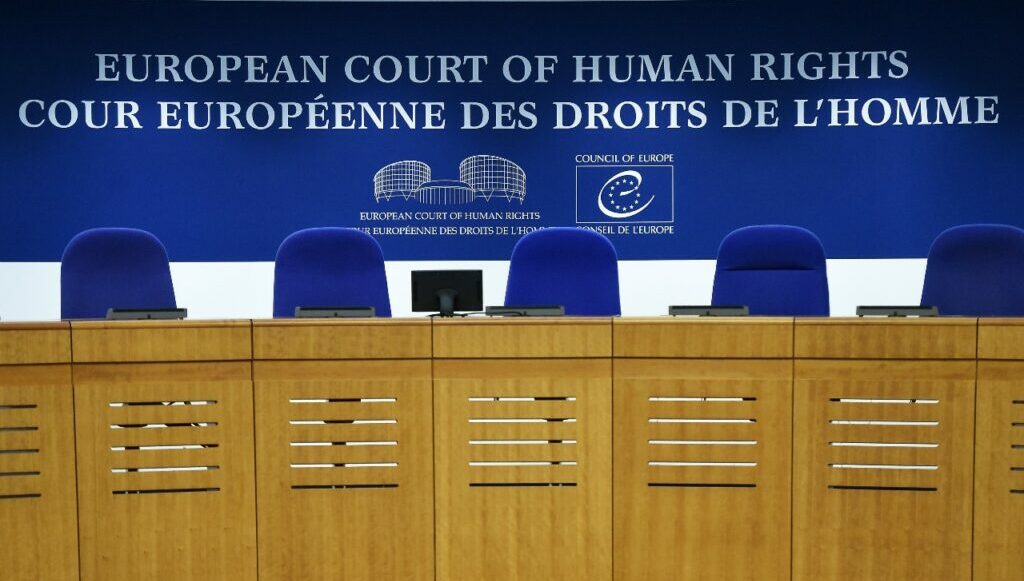The European Court of Human Rights (ECtHR) has unanimously found Greece in violation of multiple articles of the European Convention on Human Rights, citing the “pushback” of a Turkish national seeking asylum in 2019, ruling that that Greek authorities failed to assess the risks the woman faced upon her return to Turkey, where she was imprisoned as part of a crackdown by the government of President Recep Tayyip Erdoğan.
Judgment A.R.E. v. Greece – “Pushback” of Turkish national to Türkiye without examining risks she faced on her returnhttps://t.co/VbMiadD5CI#ECHR #CEDH #ECHRpress pic.twitter.com/wwMCayvQGD
— ECHR CEDH (@ECHR_CEDH) January 7, 2025
The case involved A.R.E., a Turkish national convicted in 2019 of membership in the faith-based Gülen movement.
Over the last decade Islamic scholar Fethullah Gülen and his movement, which in the past had been praised by the Turkish government for their activities in education and inter-religious and intercultural dialogue, have faced various accusations from the government, including masterminding corruption investigations in 2013 and a coup attempt in July 2016.
The Turkish government labeled Gülen, who died at the age of 83 in the US last October, and his movement as “terrorists” in May 2016.
Gülen and his followers have strongly denied any involvement in the coup or any terrorist activity but have been the subject of a harsh crackdown for a decade, which intensified in the aftermath of the abortive putsch.
Since the coup attempt, a total of 705,172 people have been investigated on terrorism or coup-related charges due to their alleged links to the movement. There are currently 13,251 people in prison who are in pretrial detention or convicted of terrorism in Gülen-linked trials.
In addition to the thousands who were jailed, scores of other Gülen movement followers had to flee Turkey to avoid the government crackdown.
Following her conviction, A.R.E. fled to Greece in May 2019 but was apprehended near the Evros River and subsequently pushed back to Turkey without being allowed to apply for asylum.
The ECtHR held that Greece breached Article 3 (prohibition of inhuman or degrading treatment), Article 5 (right to liberty and security) and Article 13 (right to an effective remedy) of the European convention. The court noted Greece’s failure to allow A.R.E. to apply for asylum or the risks she faced in Turkey, where she was later arrested.
In its ruling the court emphasized evidence of systemic pushbacks by Greek authorities, involving migrants being detained without legal basis and forcibly returned to Turkey, often under harsh conditions. The judgment cited extensive reports from human rights organizations and international bodies, including the Council of Europe, corroborating the existence of such practices.
“The respondent state’s conduct, which consisted of the ‘pushback’ of a person without allowing her to apply for asylum, manifestly breached both domestic and international law,” the court said.
A.R.E. detailed her experience of being detained in a police post near the border and transported by truck to the Evros River, where masked individuals forced her and others onto an inflatable boat for return to Turkey. Upon her arrival, she was arrested by Turkish authorities and imprisoned in Edirne and later Gebze.
Despite filing a criminal complaint in Greece, A.R.E.’s case was dismissed for lack of evidence, highlighting what the ECtHR described as a failure by Greece to provide effective remedies for victims of pushbacks.
The ECtHR’s decision comes amid mounting criticism of Greece’s treatment of migrants and asylum seekers at its borders. Advocacy groups such as Doctors Without Borders (MSF) and Amnesty International have documented widespread abuses, including violent expulsions and the confiscation of migrants’ belongings. Reports indicate that Greek authorities, often with the support of the European Border and Coast Guard Agency (Frontex), have normalized such practices.
In its statement the ECtHR stressed the absence of legal accountability for these violations.
“Despite extensive and credible evidence, Greek authorities, the EU, and its member states have failed to hold perpetrators accountable,” MSF said in a November 2023 report.
Today the ECtHR condemns a pushback of a Turkish asylum seeker, and observing ‘ strong indications of a systematic practice of pushbacks’ by Greece. It’s a final call to EU Commission, Member States and Frontex to finally act in order to stop further violations and loss of lives. https://t.co/uixSP9Qlfb
— Tineke Strik (@Tineke_Strik) January 7, 2025
The ruling has sparked renewed calls for accountability and reform within the European Union. Tineke Strik, a member of the European Parliament, urged the EU Commission and member states to act decisively.
“It’s a final call to EU Commission, Member States and Frontex to finally act in order to stop further violations and loss of lives,” Strik tweeted.
The ruling could be referred to the ECtHR’s Grand Chamber for further review. The judgment requires Greece to pay A.R.E. €20,000 in damages and compels the Council of Europe to monitor its implementation.


